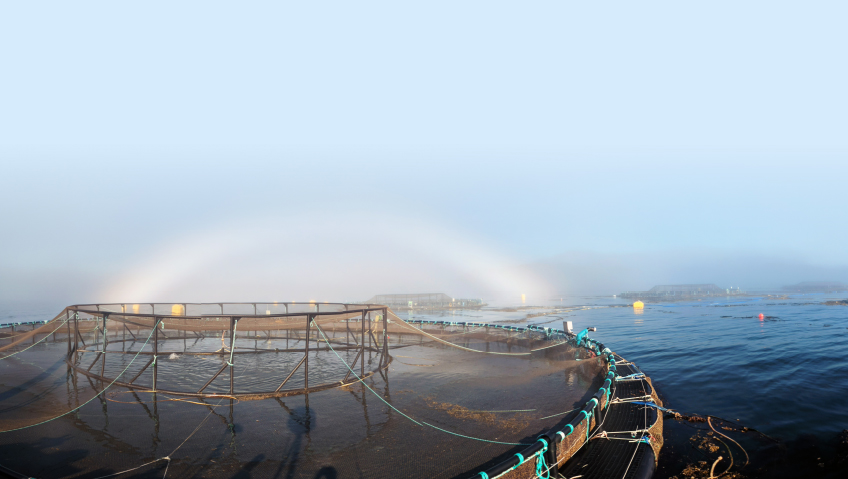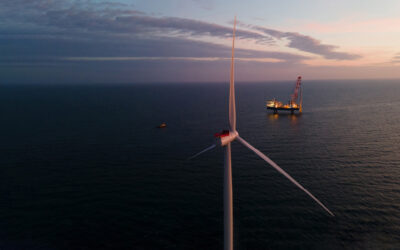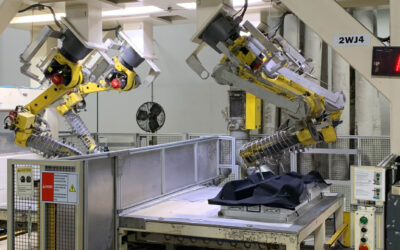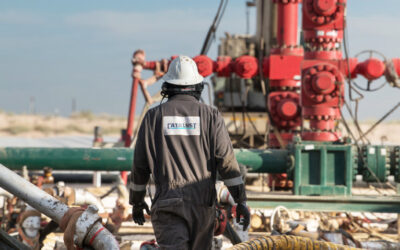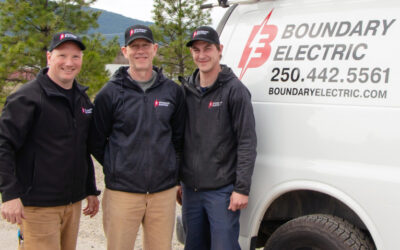Badinotti Group is a world-renowned international manufacturer of knotted and knotless netting for applications from fish farming and aquaculture to sports and safety. The Group’s Badinotti Services Canada division specializes in net maintenance and cleaning for fisheries and aquaculture farming operations in Canada.
Badinotti was founded in Italy in 1910 by a retired office worker named Giovanni Badinotti. Rather than settling into his retirement, he decided to turn his love of fishing into a second, late-life career and opened a store in Porta Vigentina, a small district in the heart of Milan, where he sold nets, floats, lines, and other fishing gear. When he was finally ready to retire, Giovanni hoped to pass the store to his son Carlo, but at first, Carlo showed little interest in fishing. Giovanni began to form a plan.
As an avid fisherman, he knew of a fishing store near the Duomo di Milan that was run by a young woman named Annunciata Colosio who had been born on the island of Montisola. Annunciata learned the traditional art of net making, a cultural staple of the island, early on. Net making and fishing were deeply important to her, and by introducing her to Carlo, Giovanni hoped to awaken a bit of that passion in his son.
His plan worked. Within a few short years, Carlo and Annunciata were married and took over the store in Porta Vigentina. Over its 110-year history, the company’s leadership has been in the hands of new generations of the Badinotti family, but the passion for net-making that Giovanni Badinotti found in Annunciata Colosio remains even now.
Today, more than a century after its inception, Badinotti is still owned by descendants of its founder. The company’s headquarters are located in Milan, Italy, but it has expanded into international markets with locations in the United States, Canada, Chile, Peru, and Slovakia. The Canadian branch of Badinotti employs 133 people divided across a main administrative office in Campbell River, British Columbia and two net maintenance service stations, called net lofts: one just north of Campbell River and the other in Port Hardy.
Those two net lofts are strategically located to support the aquaculture activities taking place from the Campbell River all the way up the coast of Vancouver Island. These operations use enormous nets that often stretch over one hundred metres and weighing many tonnes. Moving them can be difficult and expensive, so having service stations close to where those nets leave and re-enter the water makes the entire operation much more efficient.
Badinotti Services Canada provides a variety of services to its local customers which include providing new or replacement nets, as well as washing and repairing nets at its services stations, called net lofts, and the in-situ washing of nets on-site at the client’s location.
The vast majority of Badinotti’s Canadian employees are from Vancouver Island. “Most of our staff are islanders that have been in this industry for many years. We need people like that. These nets are huge, and being able to move them without damaging them is really an art form,” said Simon Proctor, general manager at Badinotti Net Services Canada.
Cleaning nets might sound like a simple process, but the reality is far more challenging. Specialized vehicles are necessary to move them; giant cranes are needed to lift them. Being able to manage and manipulate these nets to clean or repair them takes a great deal of skill and experience.
Badinotti recognizes the value of its workforce and has invested in it with opportunities for skills and equipment training. The leadership believes that the company’s strength really lies with its personnel first and foremost.
“A lot of our folks have learned these skills over many years. They’re proud of what they do. They’re proud that they’re Vancouver Islanders, and they’re really excited about what aquaculture can do for their communities,” said Proctor.
At the core of Badinotti’s business is manufacturing knotted and knotless nets. Beyond fishing, the company’s product sees uses that include safety nets for various industries and nets for sporting applications such as golf, soccer, and volleyball, and bowstrings for archery. One does not immediately think of archery when thinking about nets, but a core part of making nets is manufacturing a very strong fibre, and that fibre makes a very effective bowstring.
Recently, the opportunity arose for the company to acquire Brownell Archery, and the leadership realized that it would be an extremely good fit. Badinotti is in the process of applying its understanding of fibre manufacturing toward building high-quality bowstrings not only for hunting, but also for the competitive tournaments of one of the fastest-growing sports in North America. The company is excited to be exploring adjacent markets.
One of the most innovative aspects of what Badinotti is doing in North America is the in situ washing service it offers for clients in the aquaculture industry. In situ washing is a cutting-edge process that enables large nets to be washed without ever having to be moved. The company began offering this service just over four years ago, and it has been met with huge success.
The company’s cleaning specialists will take its fleet of state-of-the-art, super-stable catamaran-type vessels out to the nets. From the deck of the vessel, they can remotely pilot small submersible cleaning robots with onboard cameras. The robots are precise enough to move around inside the nets alongside the fish, and the crew are highly trained to operate the equipment without causing any harm or damage. The robots use spray jets to wash the netting with a specialized cleaning product called naphtha without ever physically touching the net itself.
The fact that the robots never come in contact with the nets is an important selling point for Badinotti. Typical cleaning methods make contact with the fibres of the netting which causes wear and tear over time.
“You can imagine that these nets, being so large, are also incredibly expensive. Our equipment never contacts the net, so that means the customer gets more life out of the net, which improves their competitiveness in the marketplace,” said Proctor. By taking a collection of advanced technologies and integrating them into a single, high-end solution, Badinotti has developed the most innovative net cleaning system in the marketplace.
Badinotti believes in the food security and environmental sustainability benefits of the aquaculture industry. One of the most significant challenges for aquaculture companies, and for Badinotti as an auxiliary part of that industry, is the public’s perception. According to Proctor, the general feeling among the public, particularly on the west coast, is that aquaculture has not really changed and that it continues to be a substantial burden on the environment.
In reality, the industry has made great strides to improve its environmental impact and to ensure that the fish are managed in the best possible way to minimize harm to them and to the ecosystem in which they live. “We’ve come a long way, but there’s still work to do. We need to engage with the public at every opportunity and really invite them to see the improvements that are being made. That will be our biggest challenge going forward, to change that perception,” says Proctor.
Badinotti has seen much of success recently, having grown from roughly fifty employees four years ago to 133 employees today. The company aims to continue that growth while maintaining the quality of the products and services it offers.
The willingness to invest, learn, and apply pioneering technology has enabled it to bring value to its customers. A key differentiator for the company has been its capacity to adopt the latest proven technology and incorporate it into its solutions.
Going forward, the company is excited about the growth of the aquaculture industry and anticipates potentially exploring opportunities on Canada’s east coast. “I was in Newfoundland last year listening to industry experts talk about the potential of the Maritimes for aquaculture. I think everything is in place for the industry to take that next step,” said Proctor.

